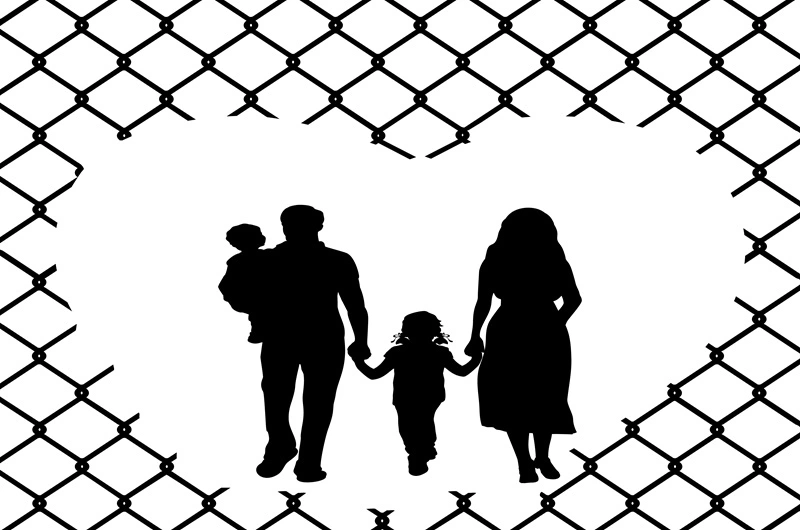Common Missteps To Avoid In Your VAWA Self-Petition Case
The journey to legal status can be life-changing for survivors of abusive relationships. For many, the Violence Against Women Act (VAWA) offers a way to rebuild their lives without depending on their abuser. However, navigating this legal avenue can be challenging, and avoiding missteps is critical to achieving success.
Applying for this protection requires careful preparation and attention to detail. In this article, learn about frequent mistakes that can delay or derail your efforts and how to sidestep them. See how taking the proper steps can bring you closer to achieving the security and freedom you deserve.

Are You Eligible To Apply For VAWA?
The Violence Against Women Act (VAWA) offers a pathway for survivors of abuse to seek legal status independently. This program protects individuals facing mistreatment and empowers them to take control of their future.
To apply, you must meet specific criteria. These requirements determine whether your circumstances qualify for this legal protection. Here are the key factors you need to meet:
- Relationship to the Abuser: You must be a spouse, child, or parent of a U.S. citizen or lawful permanent resident.
- Evidence of Abuse: Prove that you experienced physical, emotional, psychological, or financial harm due to abuse or extreme cruelty.
- Good Moral Character: Show that you follow the law and maintain an ethical record.
- Marriage in Good Faith: If you apply as a spouse, prove that your marriage was genuine and not solely for immigration purposes.
- Shared Residency: Show that you lived with the abuser at some point, even if you no longer reside together.
- Current Status of Relationship: Spouses can apply even after a divorce, as long as the divorce occurred within the last two years and resulted from the abuse.
Many misunderstand the scope of abuse recognized under VAWA, believing only physical violence qualifies. Emotional or financial control also meets the criteria. Additionally, you don’t need to live with or stay married to the abuser as long as you fulfill the other conditions.
Understanding the eligibility requirements is only the first step in your journey. Successfully filing a petition involves careful preparation and avoiding missteps that could hurt your case. Even small mistakes can lead to delays or denials, so knowing what to watch out for is critical.
What Errors Could Delay Or Deny Your Case?
Even with careful preparation, mistakes can sometimes happen during the application process. Though often unintentional, these errors can slow your case or lead to additional hurdles. By knowing what to avoid, you can take proactive steps to strengthen your petition.
Incomplete Or Inaccurate Documentation
Submitting incomplete paperwork or providing conflicting information creates significant issues during your case. Missing details or inconsistencies may cause immigration officers to question the credibility of your claims. Some common documentation problems include:
- Leaving out previous addresses or employment history.
- Failing to disclose details that contradict earlier immigration applications.
- Submitting outdated or expired supporting documents.
Missing details or providing inconsistent information can create serious setbacks in your case. These mistakes often lead to doubts about the reliability of your claims and slow down the process significantly.
Insufficient Evidence Of Abuse
Many applicants rely only on personal statements to prove their case, which weakens their petition. Your testimony matters, but it may not provide enough evidence to meet the requirements. Immigration officers look for documents that confirm the abuse you experienced and how it affected your life. Here are some examples:
- Medical or police reports.
- Counseling records.
- Witness statements from friends, family, or professionals.
Providing strong evidence of abuse is key to building a convincing case. Additionally, many applicants mistakenly focus solely on physical abuse and overlook emotional or financial control. Broadening the scope of evidence can strengthen your petition.
Lack Of Proof Of Good Moral Character
Proving good moral character is a key requirement for your petition, but many applicants fall short. Failing to include police clearance certificates from all places you’ve lived for six months or more can create gaps in your application. Immigration officers expect a complete record to verify that you meet the moral character standard.
Another common issue arises when applicants fail to disclose past legal troubles, even minor incidents. Attempting to hide arrests or dismissed charges can raise red flags and harm your credibility. Being honest and providing the necessary documentation ensures you address any concerns directly.
Language Barriers In Documentation
Errors often occur when applicants submit documents in a language other than English without adding certified translations. USCIS requires all supporting evidence in English or with an official translation. Untranslated documents or poor-quality translations create delays or lead to the rejection of your petition.
Inaccurate translations misrepresent critical details in your case, causing misunderstandings or inconsistencies in your application. These issues weaken your case and make immigration officers question the credibility of your evidence.
Procedural Errors
Errors in the filing process often trip up applicants and cause unnecessary setbacks. Forgetting to sign or date forms is one of the most frequent mistakes, as small as it may seem. Filing documents with the wrong address or using incorrect forms also creates complications that slow down your petition or result in outright denials.
Another common issue involves missing deadlines for submitting additional evidence or responding to USCIS requests. These deadlines are strict, and even a short delay can derail your case. Failing to stay on top of these requirements demonstrates a lack of preparation, which can negatively impact how officials view your application.
Relying On Unqualified Help
Turning to unauthorized individuals for assistance is a risky move. Many people seek help from non-attorneys or “notarios” who may not fully understand the process. This often leads to incorrect advice or improperly prepared applications, which can sometimes result in irreversible mistakes that harm their chances of success.
Mistakes during the application process can feel discouraging, but they don’t have to define your journey. With the right approach and careful attention to detail, you can avoid the common pitfalls that derail many petitions. By focusing on preparation and understanding what’s required, you set yourself up for a smoother path.
How Can You Avoid Common Pitfalls?
Avoiding mistakes in your application requires careful planning and a clear understanding of USCIS expectations. Taking proactive steps allows you to address potential challenges before they create significant obstacles. Preparation saves time and improves your chances of success.
Thorough Documentation
Organizing your documents is a good first step in building a strong application. To maintain consistency, ensure the information in your petition aligns with prior immigration forms. Include a detailed record of your addresses, employment history, and identification documents.
Collect Comprehensive Evidence
Providing multiple forms of evidence helps to substantiate your abuse claims and paint a complete picture of your situation. Medical records, witness statements, and counseling reports can validate your experiences and show their impact. It’s also vital to explain how the abuse—whether physical, emotional, or financial—affected your daily life.
Demonstrate Good Moral Character
Proving good moral character involves more than just submitting police clearance letters. You should disclose any past arrests or legal issues with the necessary supporting documents to explain the circumstances. Addressing your history thoughtfully and with proper guidance helps build trust and demonstrate that you meet this requirement.
Double-Check All Forms & Deadlines
Review every form carefully to ensure all sections are complete, and verify that they’re signed and dated correctly. Sending your petition to the correct address and tracking delivery helps confirm that it reaches the proper authorities. Responding promptly to USCIS requests shows your commitment to the process.
Work With A Trusted Immigration Attorney
Navigating this process alone can increase the risk of mistakes, so it’s beneficial to seek help from a skilled immigration attorney. An attorney ensures your application is complete, assists with gathering evidence, and manages submissions to USCIS. Avoid relying on unauthorized individuals or notaries who may lack proper knowledge.
Successfully filing your petition requires more than just gathering documents and meeting deadlines. The process involves navigating legal requirements and presenting your case in the best possible light. Working with a knowledgeable legal representative can help you avoid errors and increase your chances of success.
How Can Lincoln-Goldfinch Law Help Protect Your Future?
Protecting your future and rebuilding your life after abuse is a journey that no one should face alone. At Lincoln-Goldfinch Law, we are here to guide you through the process with care and professionalism. Filing a self-petition can feel challenging, but our team simplifies each step and ensures your story receives proper attention.
Our approach focuses on gathering substantial evidence to support your petition while addressing any potential challenges that may arise. We explain your options, answer your questions, and stand by you throughout the process. Your safety and well-being are our priority, and we are committed to helping you pursue protection.
Filing a VAWA self-petition can be challenging, but understanding and avoiding common mistakes can make a significant difference. Focus on providing thorough documentation, comprehensive evidence, and proof of your moral character. Double-check your forms and work with trusted legal professionals to handle your case carefully.
The process can be stressful, but having the proper support makes all the difference. For guidance and legal representation, Lincoln-Goldfinch Law offers compassionate and professional assistance to help you move forward.
Contact A U.S. Immigration Attorney Today!
Categories
How To Find Us
What Our Clients Say
“This Lawfirm is great, very professional and helpful. I love that they are always in communication and always available for when you have questions . 100% recommended by me and my family. Thank you Lincoln-Goldfinch Law – Abogados de Inmigración”




